Murder In The Valleys: The case for and against David Morris's conviction
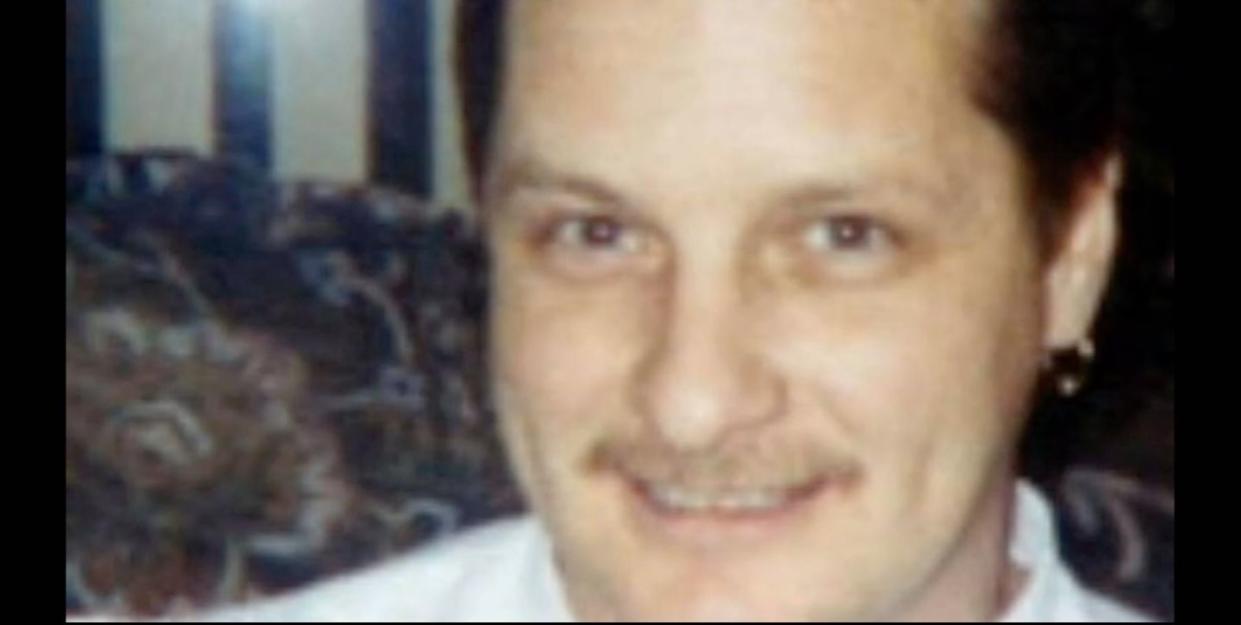
Sky Crime's new true-crime series, Murder In The Valleys, takes a deep dive into a 22-year-old case which many believe resulted in a wrongful conviction.
David 'Dai' Morris was sentenced in 2002 for the murders of three generations of a family who were bludgeoned to death in their home in Clydach, Wales.
It took more than two years for South Wales Police to arrest Morris, with an 11-week court case securing him four life sentences. But his family, and a growing number of supporters, believe someone else is to blame for the deaths.
Ahead of the show's launch, here's what happened that night, as well as the arguments for and against David's conviction.
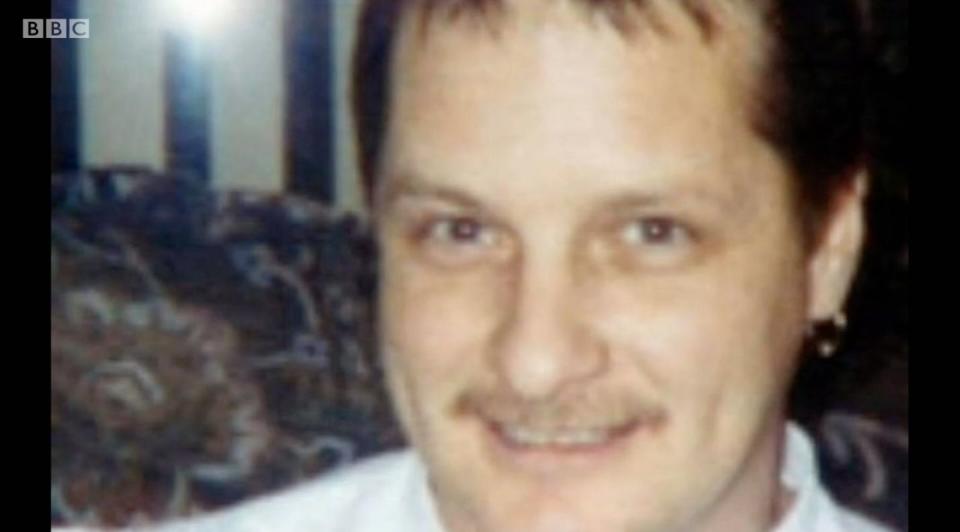
What happened on the night of the murders?
In the early hours of Sunday, June 27, 1999, the bodies of Dorris Dawson, 80, her daughter Amanda Power, 34, and her granddaughters Katie, 10, and Emily, 8, were found in their burned out home in Kelvin Road, Clydach, Wales.
Firefighters were called to the scene at around 4am for a kitchen fire, but it was only during the recovery mission, once it was put out, that the murder scene was uncovered.
It was later determined the house was set on fire twice in an attempt to conceal the attack – the first around 12.30/1am and a second one a few hours later.
All four women had been beaten in the head with a piece of lead piping that had become somewhat of a toy to the young girls, who liked to twirl it around like a baton. Dorris was killed in her bed, while Amanda (better known as Mandy) and her daughters were killed on the landing.
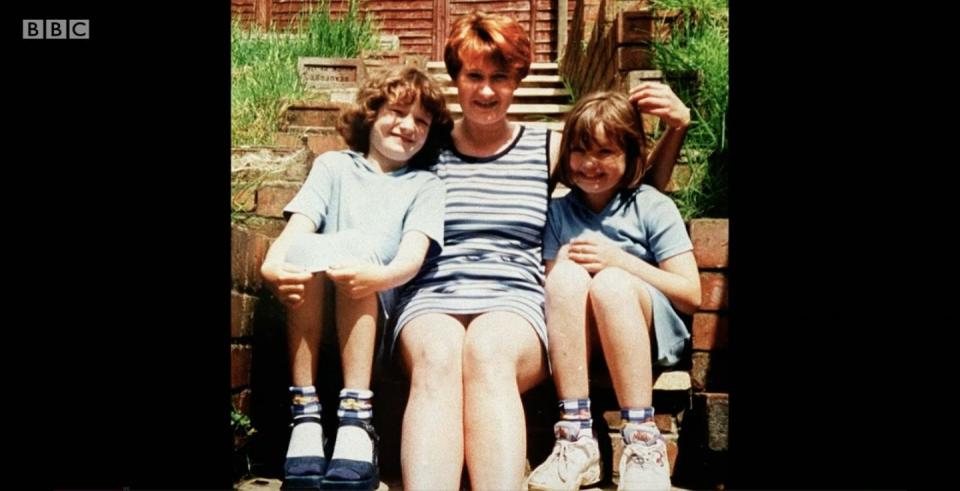
Neighbour Rosemary Jones says she was woken up when she heard a car approach the house around 1am, but assumed it was Mandy returning home. However, she now believes this could have been the killer returning back to set fire to the house after murdering the family.
There was no sign of forced entry to the house, which led detectives to believe it was someone the family knew. Among the evidence was a blood-soaked sock police believe was used as a glove, and a gold chain that appeared to have been pulled off the killer in a fight with Mandy.
The vicious death sparked one of the most expensive and extensive investigations in the history of the South Wales police.

Why was David 'Dai' Morris believed to be the killer?
Morris, 38 at the time of his arrest, lived in the nearby town of Craig Cefn Parc, about a mile away from the Powers' home.
He was taken in by police 18 months after the murders, when it was reported the gold chain found at the scene was his.
Morris had no alibi for his whereabouts at the time of the murders, and frequently changed his story when questioned. He claimed he spent that day getting drunk watching the rugby at a local pub, where he also had a row with his girlfriend who then stormed off home. He remained to continue drinking.
Morris states he left at 11.30pm and decided to stay at his parents, starting a potential five-mile walk through country roads to get to them. He then changed his mind, returning to his own house by 4.30am.
However, these timings fit in perfectly with the murders taking place, and witnesses at the pub claim they overheard him bad-mouthing Mandy, calling her an "old cow" and an "unfit mother". It was also claimed that he had taken amphetamines during his time at the pub.
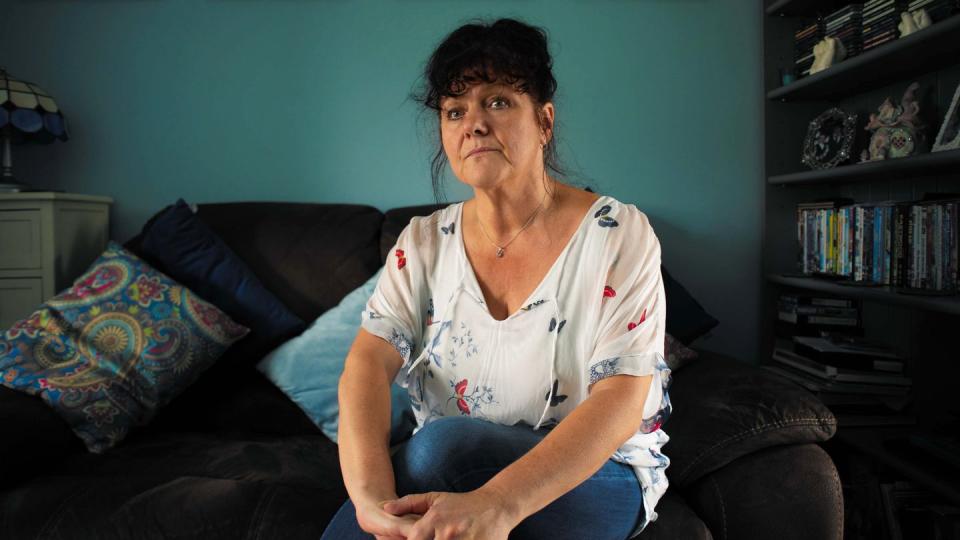
During his initial interview, he said the gold chain wasn't his, but was similar to one he had broken about two weeks later while working on a building site. He later changed his story when his cousin, Eric Williams, said Morris had asked him for money to buy a chain similar to the one he had lost, and he had bragged that he'd slept with Mandy the Friday before the murders, leaving the chain there.
Morris said he did have sex with Mandy and asked for money for the chain, but only to affirm his innocence rather than hide his guilt. At the time, he was a father to two daughters, and was living with his girlfriend, and didn't want to be found out as a cheater. He also wanted a similar chain to evade suspicion that the one at the crime scene was his.
His rapidly changing story put him in poor favour with the jury, who saw the discussion at the pub and the chain as evidence of his guilt.
Morris had also previously attacked someone, hitting him with a blunt instrument around the head, but it was later dismissed as the jury was persuaded he acted in self-defence.
After being convicted once, Morris successfully fought for a retrial, and was convicted again. During that trial, the prosecution produced evidence via phone records proving he was at home at the time he claimed to be sleeping with Mandy. This in turn threw out the reason why his chain would be at the home.
In October 2021, after a new independent investigation into the murders was launched, the police ruled the bloodied sock contained 'a scientific link' with Morris.
"I hope this now provides closure for those most affected by the murders," the police said in a video released on Twitter.
By this time, Morris had died in prison.
#NEWS | A review of issues relating to the conviction of David Morris for the murders of four people in Clydach, in 1999, has identified a scientific link between Morris and a sock which is widely accepted as having been used by the killer. pic.twitter.com/P6G7hzHBLo
— South Wales Police (@swpolice) October 18, 2021
The Powers family maintain to this day, given the evidence they've seen in court, that Morris is the man responsible for the death of Dorris, Mandy, Katie and Emily.
Martyn Lloyd-Evans, senior investigating officer of the investigation, tells Murder In The Valleys he has "no doubt in his mind" about Morris being the killer.
"This case has been looked at and looked at and looked at and explored, and I'm puzzled that people can't see Morris for what he is," he said. "Everyone wants to be an armchair detective but they don't know the facts."
Why do people believe David 'Dai' Morris is innocent?
Despite the evidence placed against him by the prosecution, and his double conviction, there is an equal amount of evidence to suggest Morris was not guilty of the crimes.
First, Morris was never seen in or near the vicinity of Mandy's home by any witnesses that evening. Second, despite a large amount of searching, there was never any definitive DNA evidence that he was in Mandy's home. Even the bloodied sock has been noted as a 'scientific link', with Steve Carey of Devon and Cornwall police stating in a video posted on Twitter that "the outcome of the forensic assessment has not established any information that undermines the conviction of David Morris".
It's added the incomplete mixed Y-STR result is "as expected as if Morris had contributed to it".
But South Wales Police have refused to release the report regarding the DNA to his defence team, which despite his death in August 2021, is continuing to fight for his exoneration. They have also refused to state exactly how conclusive the DNA evidence actually is on the sock (ie. whether it's definitive proof or if it wouldn't stand up in court).

His DNA wasn't found on the gold chain either, however forensics determined there was 'brick dust and green paint chips' within the links.
Mostly, there is no determined motive as to why he would murder an entire family, with all evidence proving, at best, circumstantial.
The prosecution successfully argued Morris 'flew into a fit of rage' after Mandy had rejected his sexual advances, but there was male DNA found at the crime scene, including on the murder weapon that again did not belong to Morris.
South Wales Police had also been coming under scrutiny for the number of criminal convictions that had been overturned in their jurisdiction, and their conduct throughout high-profile investigations.
This included the Newsagent Three of 1987, where three men were wrongfully convicted and spent 11 years in prison for the murder of a newsagent, and five Black men wrongfully convicted for the murder of a woman in 1988.
Due to the brutality of the murders, South Wales Police were under enormous pressure to find and convict Mandy's murderer.
The alternative suspects came from within their own ranks – officers (and twin brothers) Stuart and Stephen Lewis, and Stephen's wife Alison. She was having an affair with Mandy at the time of the murder and Stuart was the first senior officer on the scene of the crime.
However, again all members of the Lewis family similarly maintain their innocence in all aspects of the case, with Stephen claiming he had no idea about his wife's affair or homosexuality until after the murders went public.
Stephen and Alison were at one point arrested, but were released without charge after four days of questioning. There was not enough evidence to connect them to the crime and the Lewises were never charged. They were eventually ruled out as suspects in 2001.
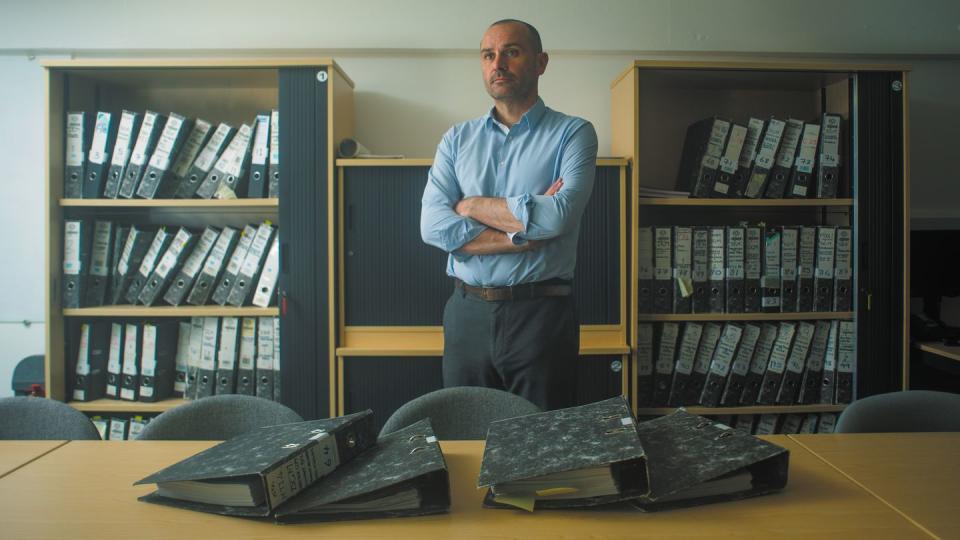
Where is David 'Dai' Morris now?
Morris died after serving 22 years in HMP Long Lartin, Worcestershire on August 20, 2021. His cause of death was never officially confirmed.
He had spent the rest of his life maintaining his innocence and appealing his conviction.
In 2007, his whole-life sentence – which means no possibility for parole – was quashed with a minimum 32-year sentence put in its place.
In January 2021, it was decided the police should re-examine the case. Murder In The Valleys follows the ensuing year of re-examination.
Murder in the Valleys starts Sunday 6 February on Sky Crime and NOW.
You Might Also Like

 Yahoo News
Yahoo News 
